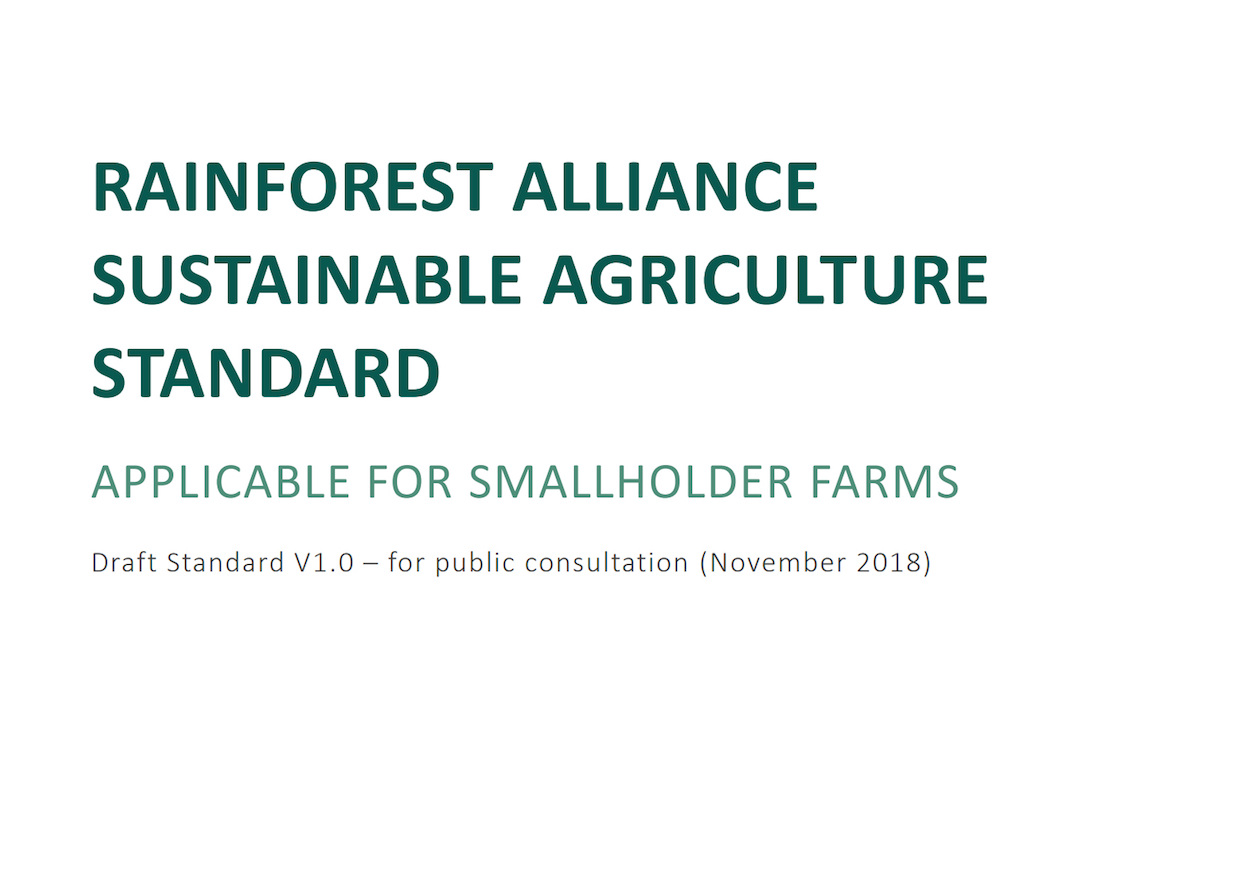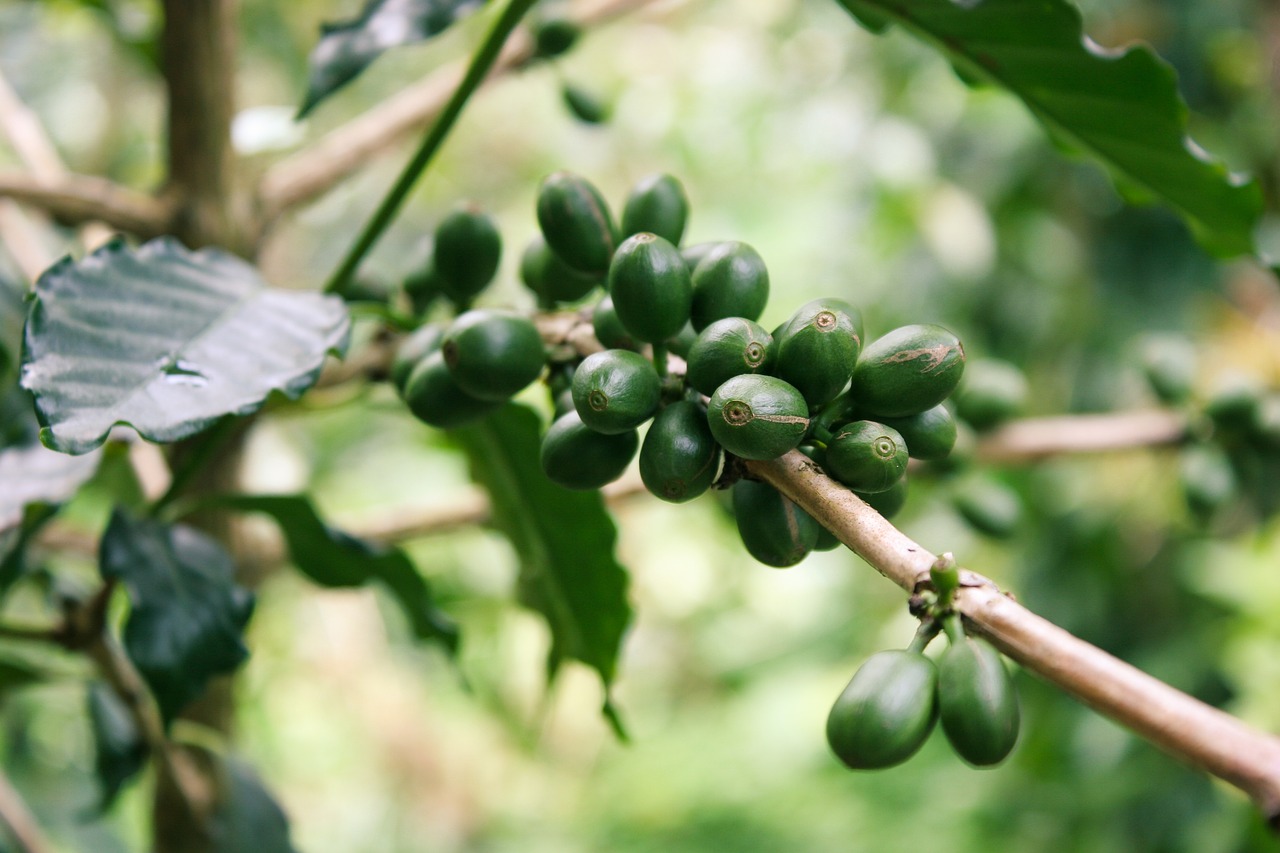
The cover of the new Rainforest Alliance draft standard. The group is accepting feedback from a public survey through February.
The Rainforest Alliance has unveiled a draft of its new certification standard following the organization’s merger with the major European agricultural certifying agency UTZ.
A public consultation on the new standard launched Dec. 1 and will run through Feb. 28. A second draft and public consultation are scheduled for June and July of this year, with a final draft being approved by the end of 2019.
The first draft of the new Rainforest Alliance standard comes with two versions: one for medium/large farms, and one for smallholder farms, with the primary distinction between the two being that medium/large farms are those that employ people and do not rely solely on family labor.
At first glance, two of the biggest differences in the new standards appear to be a mechanism by which producers can more easily work towards certification within the contexts of their given farms, and more individualized and data-driven auditing mechanisms both for producers and RA.
In terms of scope, the new standard has an increased focus on child labor —not to be confused in the standard with “family labor” or “child light work” — forced labor, sexual harassment and gender inequality. It also expands upon previous RA and UTZ standards in addressing the importance of costs of coffee production, living wages for workers and living income for farmers.
The existing RA standard involves critical criteria (required for compliance) along with a Continuous Improvement System that involves different grades for hitting specific benchmarks. In contrast, the new standard introduces a concept called Improvement Pathways. What might have been labeled “critical criteria” in the existing standard now fall under the label “mandatory” in the new standard. These are baseline qualifications such as no forced labor, no hunting endangered species, no discharging of wastewater or human waste without processing, et cetera.
But beyond the mandatory requirements, the new standard’s Improvement Pathways involve more “context-specific” and “self-selected” sustainability goals. In the new standard, context-specific requirements would be determined by a context-specific assessment of specific farms, while self-selected requirements would be chosen based on the specific goals or aspirations of the producer. In short, it aims to give producers more of a voice in determining their own path toward sustainability, with a renewed focus on farmer livelihood, profitability, and social outcomes.
“The Rainforest Alliance expects this more flexible improvement approach to benefit producers and other actors involved in agricultural supply chains and to increase our collective impact,” the group wrote in the new standard draft. “Self-determination encourages sustainability improvements that are relevant for the specific context and situation of producers, and the goal is that it facilitates focused commitment from certificate holders, buyers, and other supply chain actors to invest in these improvements.”
Like the existing RA standard, the new draft standard does not provide a mechanism for price premiums to producers meeting the certification criteria.
Nick Brown
Nick Brown is the editor of Daily Coffee News by Roast Magazine.







Comment